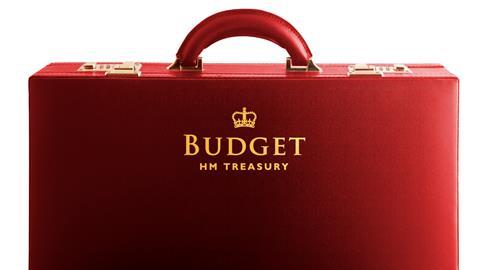Chancellor Jeremy Hunt’s 65-minute long budget speech had plenty of hat but a distinct lack of rabbits as it closed on the worst kept secret in Westminster – a further 2p cut to National Insurance.
The big announcements were largely consumer-focused as the government sought to lay the groundwork for a 2024 election campaign. But what was there in his speech for the grocery industry?
New duty on vaping
Another pre-briefed measure was the introduction of a new duty on vaping products, which will be introduced in October 2026.
Designed to deter the take-up of vaping among non-smokers and young people, the Chancellor announced a consultation on how the new tax will work.
Additionally, there will be a one-off increase to tobacco duty, introduced at the same time, to maintain the tax differential between tobacco and vaping and not deter smokers from switching to less unhealthy vaping products.
Read more: Vaping to be hit with new excise duty, plus tobacco duty rise
“Increasing taxes on vaping will make vapes less accessible for the most disadvantaged in society who have the highest smoking rates and are most in need of an effective tool to quit,” says UKVIA director general John Dunne.
Evapo CEO Andrej Kuttruf adds: “The true winners from today’s budget are criminals that supply the illicit market for vaping in the UK. The tax increase… will only pour petrol on the flames of the already flourishing black market and hurt legitimate retailers that follow the rules.”
Alcohol duty frozen
Hunt said the government was “backing the Great British pub” with another freeze on alcohol, extending the autumn statement freeze until February 2025.
The extension would benefit 38,000 pubs across the UK and is in addition to the £13k of savings they get from the current 75% business rates discount, the Chancellor said.
Read more: Alcohol duty to be frozen for further six months
Emma McClarkin, CEO at the British Beer & Pub Association, says: “We welcome a freeze to beer duty at this budget. However, the burden of tax is still spiralling on our pubs, who face £450m increase this April. We need more from the government on business rates and VAT to truly back the British pub.”
The FWD states: “This freeze is essential to combat rising inflation and the cost of living crisis. The government must ensure the decision to end the alcohol Duty Stamps Scheme does not drive duty fraud, which the stamps were brought in to prevent.”
Fuel duty frozen yet again
To the surprise of absolutely no one – perhaps other than the OBR forecasters who are continually forced to price in a duty escalation into forecasts – there was a freeze in fuel duty for the 14th consecutive year.
Fuel duty had been frozen since 2011, but was nominally scheduled to rise by 5p at the end of this month before the inevitable cancellation today.
FWD says this measure “will go some way to relieving the eye-watering costs wholesalers currently face”. “However, the government must provide further support for businesses across the transport sector in the face of the high cost of doing business,” the trade body adds.
Cost of living support
The focus on the budget was more widely on easing cost of living pressures on consumers.
While highlighting that inflation is forecast to return to the Bank of England target of 2% in the coming months, the budget announced a number of increased support measures:
- National insurance will be cut by 2p from 6 April, taking the tax down to 8% for employees and 6% for the self-employed. Hunt said the average employee would benefit by £450 and by £900 when combined with November’s similar 2p cut
- The child benefit cut-off will be changed. Firstly, it will shift from an individual earnings cut-off to a household-based limit by 2026. In the interim, the threshold for the reduction will rise to £60k from £50k from April, and the level it is withdrawn completely to £80k
- The government’s Household Support Fund will be kept at current level for six months
- The repayment period for new budgeting advance loans for low-income people will be doubled to 24 months
- A £90 charge for gaining a debt relief order will be abolished
BRC CEO Helen Dickinson says: “The cut to National Insurance might go some way to supporting households impacted by the high cost of living. However, unless government addresses the government-imposed cost increases, we may yet see the spectre of higher inflation return, limiting the benefits to households of lower National Insurance.”
No action on business rates
“How can a whopping 6.7% tax rise in April be justified, when the Chancellor himself is saying inflation is forecast to be nearer 2%?” the BRC’s Dickinson asks as the government failed to heed retailer calls to address business rates.
She adds: “The government has had five years to fix the problems with business rates, as they promised in their election manifesto. Retailers pay over £7bn a year in business rates – over 22% of the total raised by the tax.
“This is disproportionate, destructive, and any government that is serious about growing the economy must address this as a matter of urgency.”
John Webber, head of business rates at Colliers, says the lack of support is “another kick of the face for the high street”.
“The Chancellor’s failure to ‘right the wrongs’ of the 2023 autumn statement and cancel the business rates increases planned for April was massively disappointing,” he says.
“The Chancellor spoke of creating a tax regime pro-business, designed for further “levelling up” and competing on the European stage. Yet nowhere else in Europe do businesses pay approaching 60% the rental of their premises in property taxes and at current levels this is unsustainable and deters new investment in businesses.”
Economic growth improving, but not by much
Following the UK’s entry into recession in the fourth quarter of 2023, the OBR has upgraded its UK GDP forecast to 0.8% this year (from 0.7%) and to 1.9% in 2024 from 1.4%.
However, this is largely driven by higher levels of inward migration than the government itself has pledged (and revised upwards by the OBR), with GDP per capita predicted to fall again in 2024 by 0.1% in addition to the 0.7% fall in 2023.

























No comments yet